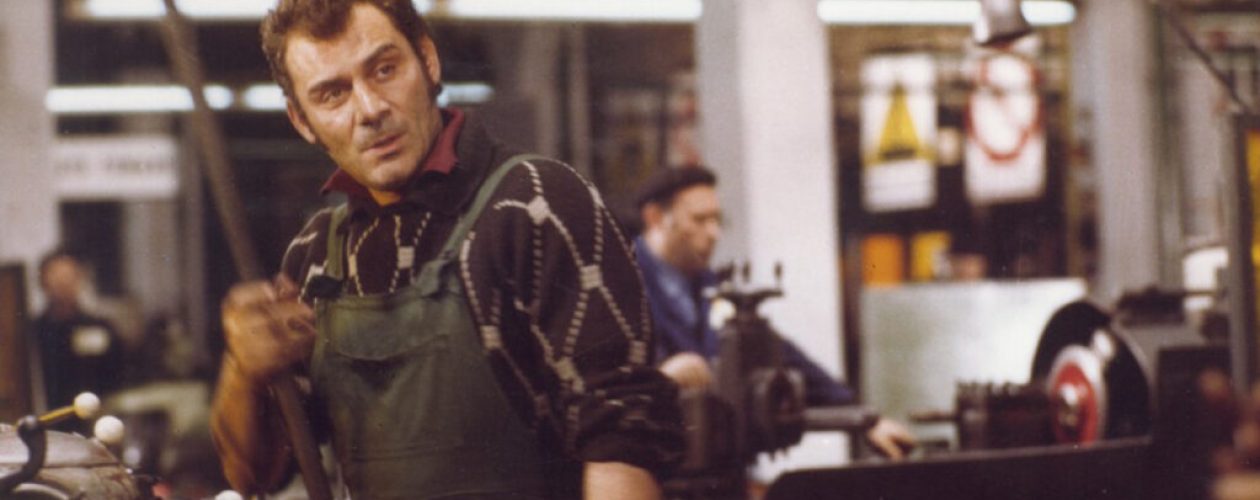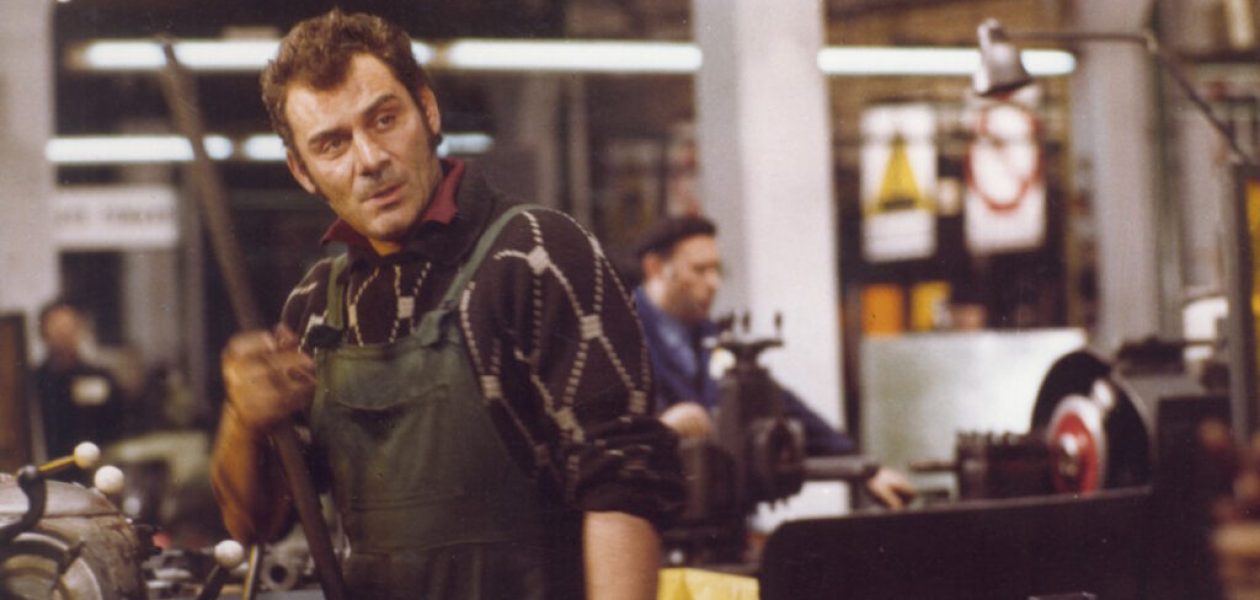LA CLASSE OPERAIA VA IN PARADISO (The Working Class Goes to Heaven – Italy, 1971, 125′)
Sunday October 8th, 10 a.m, Cinema Centrale Arthouse
Event in collaboration with Cinema Centrale Arthouse
The Long March
Tribute to Gian Maria Volontè 90 years birth anniversary.
The collaboration with Cinema Centrale Arthouse continues this year to present cinema about labor issues of the past year to the public, with a focus on films made in Italy and themes that are always topical.
Sunday October 8th will be the occasion to rewatch La classe operaia va in Paradiso by director Elio Petri (Italy, 1971) at Cinema Centrale Arthouse at 10.00 am. A tribute by the Festival to Gian Maria Volontè 90 years after his birth, with this unforgettable movie that offers a reflection on the alienation of working-class people in the 1970s, shedding light on the conflicts that characterize many current working situations in different ways. Presented by Caterina Taricano (journalist and film critic).
Admission mode: free entrance.
Direction: Elio Petri
Screenplay: Ugo Pirro, Elio Petri
Photography: Luigi Kuveiller
Editing: Ruggero Mastroianni
Music: Ennio Morricone
Actors: Gian Maria Volonté, Mariangela Melato, Luigi Diberti, Salvo Randone, Renata Zamengo, Mietta Albertini, Flavio Bucci
Production: Euro International Film
Ludovico Massa, known as Lulu, a worker in a metalworking factory, is a kind of piecework champion: none of his comrades can match his productive pace. He is not happy with himself, but kills himself with fatigue, until one day he loses a finger. Completely changed, he advocates an all-out strike. He is fired. Thanks to the intervention of the trade unions, he is re-hired. On the verge of madness, he tells his comrades about a wall to be knocked down beyond which lies the paradise of the working class.
Elio Petri (Roma, Italy, 1929 – Roma, Italy, 1982), director, screenwriter and film critic, he began his career in the 1950s by collaborating on the subject and screenplay of films by various filmmakers, in particular Giuseppe De Santis, whom he considered his master. Ever since he was a teenager deeply attached to left-wing ideals, he directed his first feature film in 1961, L’assassino, starring Marcello Mastroianni, in which poetic lines that he would develop in later works were already evident: psychological analysis, the relationship between human beings and power (the trespassing of realism into the grotesque would occur at a later stage). If I giorni contati, with Salvo Randone, expands the existential reflection of the characters, Il maestro di Vigevano (from the novel of the same name by Lucio Mastronardi), with Alberto Sordi, moves into the territories of bitter comedy. Petri’s cinema travels through genres, including science fiction (La decima vittima), the erotic fantasy with horror overtones (Un tranquillo posto di campagna), the grotesque (Todo modo, the second film based on a book by Leonardo Sciascia after A ciascuno il suo), in a continuous explosion of the real and surreal as well exemplified by the ‘trilogy of neurosis’ consisting of Indagine su un cittadino al di sopra di ogni sospetto (Academy Award for best foreign film), La classe operaia va in Paradiso, La proprietà non è più un furto. In 1978 he filmed Le mani sporche (The Dirty Hands) for RAI, a three-part television adaptation of Jean-Paul Sartre’s play. In 1980 he debuted in theaters with the direction of The American Clock by Arthur Miller. He died two years later at the age of 53 years.
Filmography: Nasce un campione (cm, doc., 1953), I sette contadini (cm, doc., 1958), L’assassino (1961), I giorni contati (1962), Il maestro di Vigevano (1963), Nudi per vivere (co-regia di Giuliano Montaldo e Giulio Questi, doc., 1963), Alta infedeltà (episodio Peccato nel pomeriggio, 1964), L’Italia con Togliatti (film collettivo, mm, doc., 1964), La decima vittima (1965), A ciascuno il suo (1967), Un tranquillo posto di campagna (1968), Indagine su un cittadino al di sopra di ogni sospetto (1970), Documenti su Giuseppe Pinelli (co-regia di Nelo Risi, mm, doc., 1970), Tre ipotesi sulla morte di Giuseppe Pinelli (cm, 1970), La classe operaia va in Paradiso (1971), La proprietà non è più un furto (1973), Todo modo (1976), Le mani sporche (1978), Buone notizie (1979).


